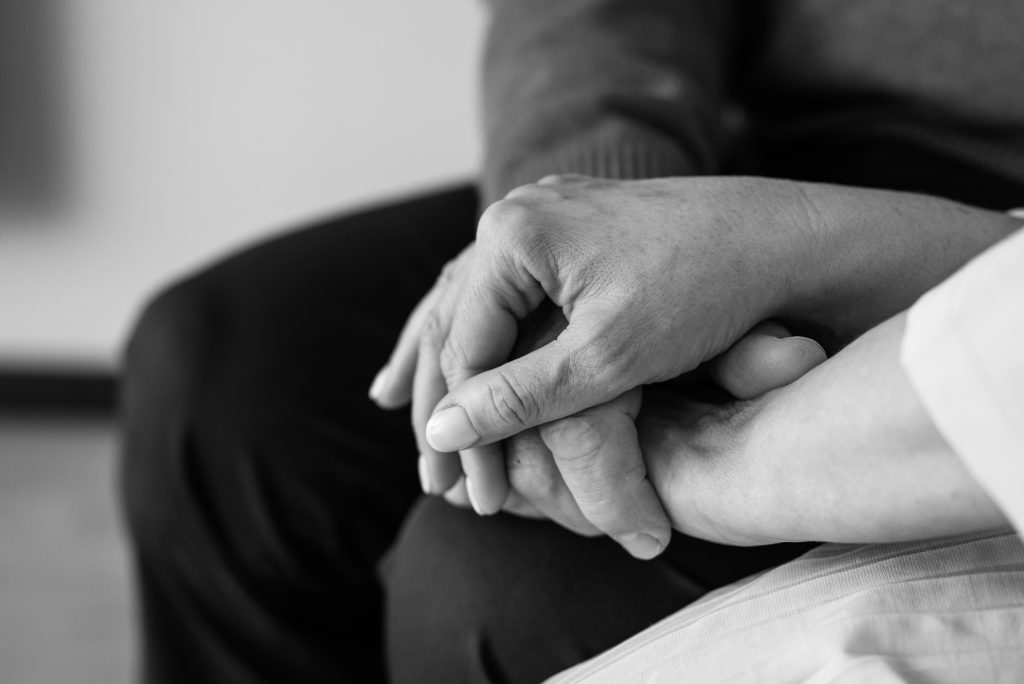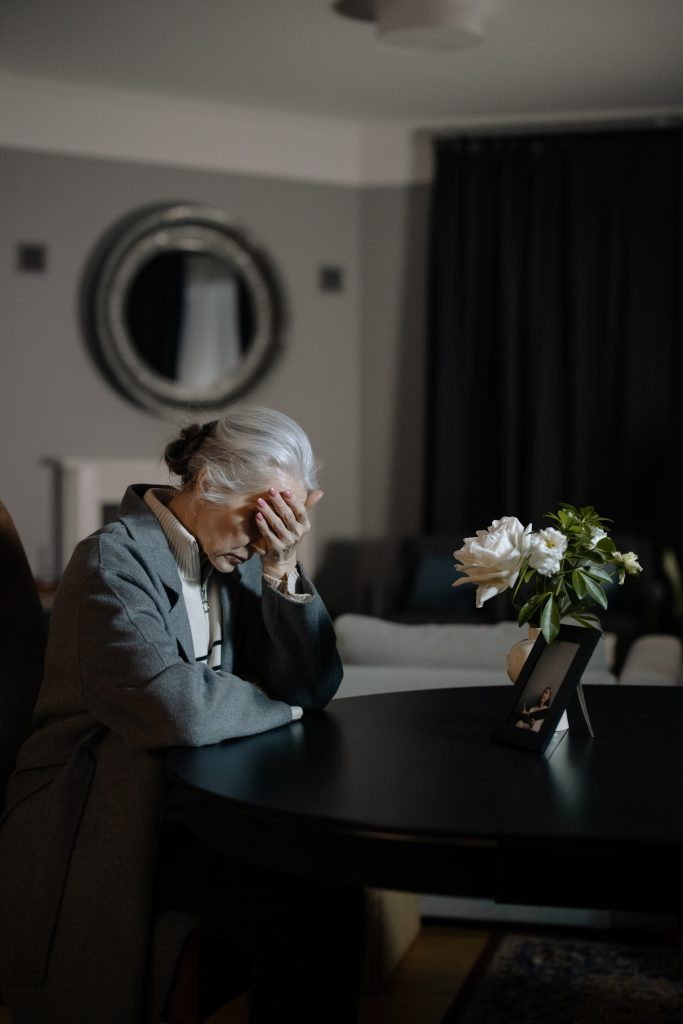LEARN SOMETHING NEW
Therapy Blog for Orem, Spanish Fork & South Jordan
Grief Counseling: Is There a Correct Way to Grieve?
About Grief: Is There a Correct Way to Grieve?
For many of us our first interaction with death and grief is through watching tv or films. Often in funeral scenes we see a somber gathering of friends and family. Inexplicably it is always raining. You yourself may be moved as the words said or music played stirs emotions. The grieving characters are either numb or distraught. Death, at least in traditional American media, is typically portrayed as painful and devastating. 
As media may be your only connection to death before the loss of a loved one it is easy to compare your experiences with the ones of actors on screen. These portrayals of what it is like to lose a loved one may be aligned with your experiences, but it also may not. Many people cite guilt over their reactions to the passing of a loved one thinking that there is a correct way to grieve, and they are not following it. (Related article: 7 Things to Remember When Dealing with Loss).
Grief is personal. There are a wide range emotions and experiences with grief. (Related Article: Myths About Grief). These are largely based on one’s culture, family, personal strengths, and relationship with the deceased. For some grief is full of laughter and tears. For others grief is centered on relief as their loved one’s suffering has ended. No emotions are wrong, Even emotions that are typically viewed as negative can still have a healthy place in processing your loss.
While there is no correct way to grieve it is important to notice the short- and long-term effects grief has on your life and determine if these impacts are healthy. Here are three things to seriously consider within your grief. While again, these responses are normal we want to ensure that our grief does not shift our lives in harmful directions.
You don’t want to be alive
Grief can be painful. For some the idea of living without a loved one can seem too much to bear. We know that after someone has died by suicide their family members are at an increased risk of themselves dying by suicide.
If you feel like ending your life and have a plan to do so, please contact emergency services at 911 or 988.
You may feel alone in this, but you do not have to be. Reach out to family or friends who you feel safe with and share your feelings. They can support you in your grief. Therapy is also a great resource to use. A therapist can provide you a judgement free space to share how you are doing. Therapists are trained on having conversations about suicide and how to help suicidal people. They can provide you new tools and skills to help deal with overwhelming emotions, or the lack of any emotion. (Related article: How to Deal with Grief).
They can provide you new tools and skills to help deal with overwhelming emotions, or the lack of any emotion. (Related article: How to Deal with Grief).
Your other relationships are suffering
A loss can alter relationships or bring old problems back to the surface. This may be tension with your spouse. It may be ignoring friends. Or it may be distancing yourself from your other children. It is important that you continue to have meaningful relationships with the living. If you have determined that certain people no longer have a place in your life, that may be appropriate. (Related article: Bereavement and Grief).
However, our connections with others provide us strength and support. It may be helpful to include others in your grief as you work through the change. Grief can even be a way to strengthen relationships and bonds with your friends and family.
You have lost all direction
For some loss is a spark to change, to try out new things. Others may want to return to a new sense of normalcy. Both are attempts to move forward. Some however may feel lost and stuck. You may think “how do I go throughout life without this person?” Moving forward may make you feel anxious or depressed. It may feel disrespectful, like your lost one will disappear if you don’t stay in the moment of their loss forever. You may feel like just staying in the moment and refuse to move forward.
Moving forward does not mean you are moving on. (Related article: Debunking Myths about Grief). Your deceased love one can always have a place in your life if you want them to. It is important to continue experiencing life and all it has to offer you.
Start Grief Counseling
No matter how you are responding to loss, therapy can be a great space to process the change, work through your grief, and improve your other relationships. Your loss is an important part of your life story and therapy can help you mindfully chose the direction of your life moving forward.
Written by Emily Helms, MFTI
